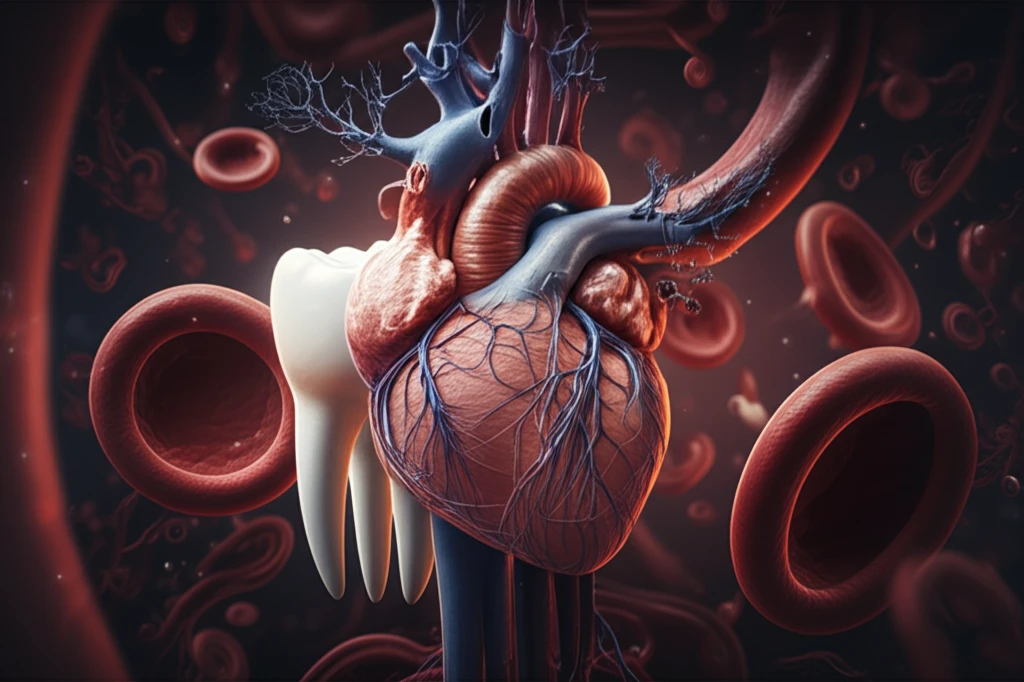
Gum Health SOS: Uncovering the Hidden Link Between Periodontal Disease and Heart Health
"Could your next dentist visit save your heart? Discover the surprising connection between periodontal disease (PD) and cardiovascular disease (CVD) and what it means for your overall well-being."
For years, heart health has been primarily associated with factors like cholesterol levels, blood pressure, diet, and exercise. But what if the key to a healthier heart lies in something as simple as your gums? Emerging research is highlighting a strong and surprising link between periodontal disease (PD), commonly known as gum disease, and cardiovascular disease (CVD), the leading cause of death worldwide.
Periodontal disease is a chronic inflammatory condition affecting the tissues that support your teeth. It starts with bacterial growth in the mouth, leading to inflammation of the gums (gingivitis) and, if left untreated, can progress to damage the bone and tissues that hold your teeth in place. Cardiovascular disease, on the other hand, encompasses a range of conditions affecting the heart and blood vessels, including coronary artery disease, heart failure, and stroke.
This article explores the intricate relationship between these two seemingly disparate conditions, examining how periodontal disease can increase your risk of developing cardiovascular problems and what you can do to protect both your heart and your smile.
The Inflammatory Connection: How Gum Disease Affects Your Heart

The link between periodontal disease and cardiovascular disease isn't as far-fetched as it might seem. The primary culprit is inflammation. When you have gum disease, your body is in a constant state of low-grade inflammation. This chronic inflammation doesn't just stay in your mouth; it can spread throughout your body, including your arteries.
- Bacterial Invasion: Bacteria from your mouth enter the bloodstream through inflamed gums.
- Inflammatory Response: The immune system responds by releasing inflammatory substances like C-reactive protein (CRP) and cytokines.
- Artery Damage: These substances can damage the lining of blood vessels, promoting the buildup of plaque (atherosclerosis).
- Clot Formation: Inflammation also makes blood more likely to clot, increasing the risk of heart attack and stroke.
Protecting Your Heart Through Oral Health
The good news is that you can take proactive steps to reduce your risk. Maintaining good oral hygiene and seeking regular dental care are crucial for preventing and managing periodontal disease. By taking care of your gums, you're not just preserving your smile; you're also safeguarding your heart. Further studies are needed to provide even more evidence for this critical link.
